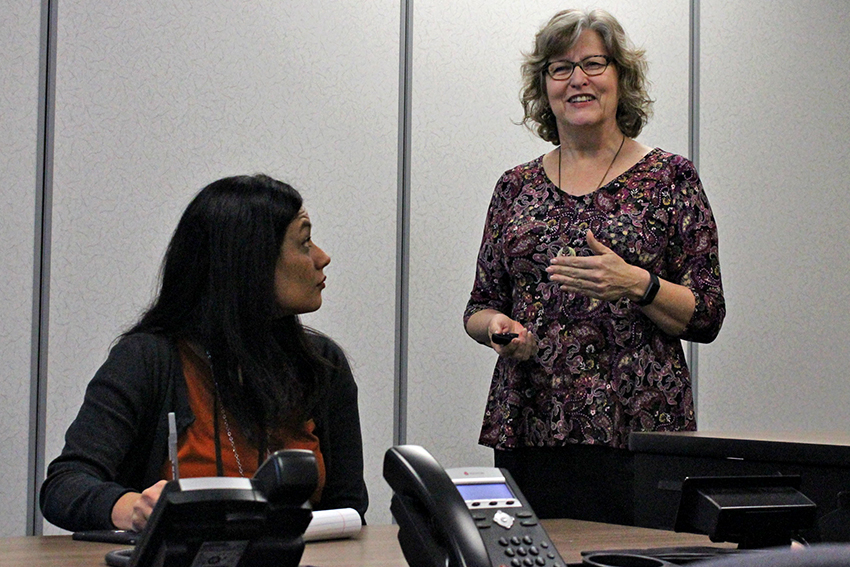University employees now have an additional campus resource provided by their coworkers that is solely for them — the Victims Advocate Network.
The Victims Advocate Network is a group of specially-trained UT staff volunteers who work with the UT Police Department to respond to calls from distressed faculty who have been victims of crime or bystanders in an incident. The responding UTPD officer calls a VAN volunteer to the scene when they think the victim could benefit from psychological first aid and connection to more long-term resources.
Psychological first aid includes validation of the emotions the victims are experiencing and letting them know it is okay to seek further help, such as counseling.
“Everybody knows about CPR and even recently, there’s been the Stop the Bleed campaign, like being able to stop people’s physical wounds, but mental health is a big issue too,” VAN volunteer Monica Kortsha said. “Being able to have someone be that mental health first responder (allows) people to handle their emotions and not feel completely overwhelmed in that situation.”
Kortsha, a science writer at the Jackson School of Geosciences, said she worked at a crisis hotline and said it’s good for UT to establish this program alongside UTPD.
“I know it can be super intimidating, along with having something horrible happen to you, (to have) somebody showing up in a uniform and a badge,” Kortsha said. “We’re not police officers. We show up in an orange vest and blankets and those little squeezy balls if people need a stress ball. It allows the police officers to focus on their job, too.”
VAN has been active for about a week since UTPD Chief David Carter announced the program in a campus-wide email, and they have responded to one call since the program started. VAN volunteer Katherine Romberg responded to the call of an employee having her purse stolen.
“I could tell she was very frightened of somebody coming into her space and taking something of hers,” said Romberg, an admissions office manager. “I think that’s really important to know, through our training, that people need to be heard. By listening to the person, I felt that I was helping her in some way.”
VAN coordinator Mayra Sigala-Ramon said the idea for this program grew from an incident a few years ago in which an employee died on campus, and their friends and coworkers needed support, but there was not enough capacity within the existing Employee Assistance Program to meet employee needs.
“They only have three full-time counselors serving 22,000 employees at the University, so they realized that there is a gap in services for staff members,” Sigala-Ramon said. “UTPD and the Employee Assistance Program have been working on this idea and finally got the grant to start the program earlier this year.”
VAN is responding to daytime calls and will hopefully include nighttime calls in three weeks, Sigala-Ramon said. There are currently seven VAN volunteers, and Sigala-Ramon said the goal is to have 40. The next volunteer information session is March 28, and there is additional information on the VAN website.
“Every person needs help sometimes,” Romberg said. “I do believe that VAN will actually help to do away with the stigma of thinking that all adults are just strong people and can deal with their problems on their own.”



















